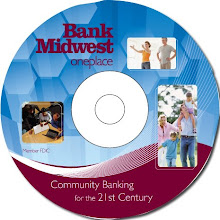The value of storytelling is beautifully illustrated in the film Sweet Land. If you haven’t seen the film, rent it on DVD; if you’ve already seen the film, see it again. You missed something.
Sweet Land is an independent film set and filmed in Minnesota; it tells the story of Olav, a Norwegian farmer, and Inge, his mail-order German bride, who is ostracized by Olav’s Norwegian neighbors from the moment she arrives, circa 1920. Critics have hailed the film for its cinemetography, its plot, its sparse script, and its masterful acting. And while the film deserves the multitude of praise it has received, all the reviewers have focused on the love that develops between the main characters.
But there’s another, more powerful relationship revealed in Sweet Land, one between the elderly Inge and her grandson, the man charged with perserving her legacy. It is between these two characters that the real power of Sweet Land unfolds. Inge’s story is revealed by the grandson and her legacy endures because her tale exerts power over him. (To give you more detail than this would be to spoil the plot for you.)
If you're unsure about the enduring power of a personal life story, even a story of a simple immigrant or a humble farmer, see Sweet Land. Once you do, you’ll understand how our life stories allow us to live on long after we’ve drawn our final breath.
Saturday, December 15, 2007
Saturday, December 1, 2007
Life is a work in progress
Recently, I spoke to a group of women business professionals on the topic of preserving life stories. A prerequisite for giving such a presentation is that I provide a bio to be used as an introduction. It was to that task that my attention had turned when it occurred to me that it just might be easier to write my own obituary.This introductory bio, after all, requires that I position myself as an expert, someone uniquely qualified to expound on a topic such as writing one’s personal story. It’s not that I can’t establish such authority; I can. But the whole process strikes me as about as interesting as drafting a resume, or worse, a budget.
But an obituary bypasses the need to establish credentials and gets to life’s essence; it cuts to the chase. It can and should be all about the story, which when you take away the living, breathing, deadline meeting, sometimes running in circles part of a life, is all we can really leave behind because our assets get divvied up, our bodies decay and the soul has a forwarding address.
Sure, an obituary can include a life’s highpoints – its credentials, if that’s how you prefer to define highpoints. But it can do more. A well-written, especially self-written obituary can be our best opportunity to reveal to the world a work-in-progress life as we conceive it to be in our wildest – or most earnest – dreams.
It can also be the best opportunity to reveal such a life to ourselves when we’re too busy or distracted or frustrated to recognize what lies in the land next door – a place we call our potential. Most of us don’t want to think about death and so the thought of writing our own obituary can be distasteful. But it might be a worthwhile exercise in life examination to think about how you'd feel about losing all those things we push off to "someday" should this day brings those hopes to an end.
Give it a try. If your life ended now, right now, your obituary would probably include a line like this: At the time of death, [insert your name here] was … .Now write your ending. If you don’t like the way your life reads, rewrite it – while you still have the opportunity.
But an obituary bypasses the need to establish credentials and gets to life’s essence; it cuts to the chase. It can and should be all about the story, which when you take away the living, breathing, deadline meeting, sometimes running in circles part of a life, is all we can really leave behind because our assets get divvied up, our bodies decay and the soul has a forwarding address.
Sure, an obituary can include a life’s highpoints – its credentials, if that’s how you prefer to define highpoints. But it can do more. A well-written, especially self-written obituary can be our best opportunity to reveal to the world a work-in-progress life as we conceive it to be in our wildest – or most earnest – dreams.
It can also be the best opportunity to reveal such a life to ourselves when we’re too busy or distracted or frustrated to recognize what lies in the land next door – a place we call our potential. Most of us don’t want to think about death and so the thought of writing our own obituary can be distasteful. But it might be a worthwhile exercise in life examination to think about how you'd feel about losing all those things we push off to "someday" should this day brings those hopes to an end.
Give it a try. If your life ended now, right now, your obituary would probably include a line like this: At the time of death, [insert your name here] was … .Now write your ending. If you don’t like the way your life reads, rewrite it – while you still have the opportunity.
Subscribe to:
Comments (Atom)






